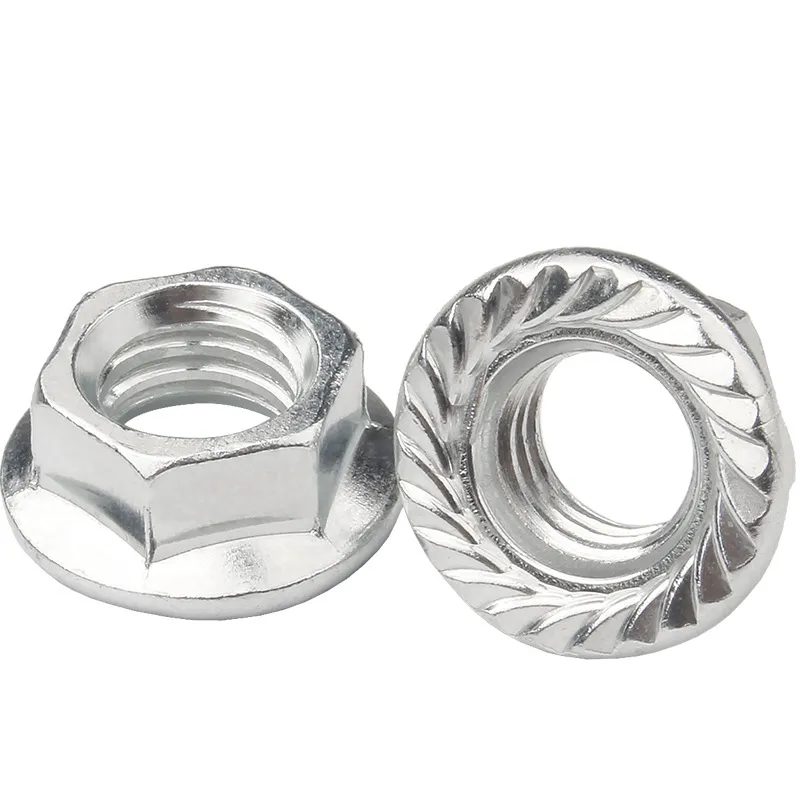

stud bolt ss316
Dec . 10, 2024 09:53 Back to list
stud bolt ss316
The Importance of Stud Bolts in Engineering A Focus on SS316
In the realm of engineering and construction, fasteners play a crucial role in ensuring the structural integrity and safety of various applications. Among the myriad types of fasteners, stud bolts stand out as a vital component, particularly in high-stress environments. This article delves into the characteristics, applications, and significance of stud bolts, with a particular focus on SS316, a stainless steel alloy renowned for its exceptional properties.
Understanding Stud Bolts
A stud bolt is a type of fastener that consists of a rod with a threaded end on both sides. Typically used in conjunction with nuts, stud bolts offer a versatile solution for securely fastening two or more components together. The unique design allows for a higher tensile strength compared to conventional bolts, making them ideal for applications that require a strong and durable fastening solution.
The Role of SS316 Alloy
SS316, also known as Type 316 stainless steel, is austenitic in nature, which gives it notable attributes that enhance its performance in various environments. The alloy contains chromium, nickel, and molybdenum, which contribute to its superior resistance to corrosion and oxidation. This makes SS316 particularly favorable for applications in marine environments, chemical processing industries, and other scenarios where exposure to harsh conditions is a risk.
One of the key advantages of using SS316 stud bolts is their resistance to pitting and crevice corrosion, which are common issues associated with chloride environments. This property is especially beneficial in coastal areas, where saltwater can significantly shorten the lifespan of traditional fasteners. Furthermore, SS316 is known for its excellent high-temperature strength, making it a preferred choice in industries where thermal stress is a consideration.
Applications of SS316 Stud Bolts
stud bolt ss316

SS316 stud bolts find extensive application across various industries. In the chemical and petrochemical sectors, they are used in equipment such as reactors, vessels, and pipelines, where they can withstand corrosive substances and high-pressure conditions. In the marine industry, SS316 stud bolts are employed for constructing ship parts and offshore platforms, providing robust performance against salty environments.
Additionally, the food and beverage industry often relies on SS316 due to its compliance with hygiene standards. In applications such as brewing, dairy processing, and pharmaceutical manufacturing, SS316 stud bolts ensure that there is minimal risk of contamination, thereby safeguarding product quality and safety.
Benefits of Using SS316 Stud Bolts
The decision to use SS316 stud bolts brings with it numerous benefits. Firstly, their corrosion resistance reduces the maintenance requirements and the total cost of ownership over time, as there is less need for replacements or repairs. Secondly, SS316’s durability under stress contributes to the overall reliability of mechanical assemblies, thereby enhancing safety in structures and equipment.
Another notable benefit is the ease of installation. The threaded design of stud bolts allows for straightforward assembly and disassembly, which is advantageous during maintenance or repairs. This feature makes them an excellent choice for industries that require regular inspection and service of their equipment.
Conclusion
In conclusion, stud bolts, particularly those made from SS316 stainless steel, play a significant role in various engineering applications. Their unique properties, including corrosion resistance, high-temperature strength, and ease of use, make them indispensable in a multitude of industries. As we continue to evolve technologically and face new challenges in material science, the reliance on superior fasteners like SS316 stud bolts is more important than ever. Understanding their benefits and applications can help engineers and designers make informed choices that enhance the longevity and safety of their projects. Whether in construction, manufacturing, or any other sector, the choice of fastener can significantly influence the success of an engineering endeavor, with stud bolts leading the way in reliable fastening solutions.
Latest news
-
High-Strength Hot Dip Galvanized Bolts - Hebei Longze | Corrosion Resistance, Customization
NewsJul.30,2025
-
Hot Dip Galvanized Bolts-Hebei Longze|Corrosion Resistance&High Strength
NewsJul.30,2025
-
High-Strength Hot-Dip Galvanized Bolts-Hebei Longze|Corrosion Resistance&High Strength
NewsJul.30,2025
-
Hot Dip Galvanized Bolts-Hebei Longze|Corrosion Resistance&High Strength
NewsJul.30,2025
-
Hot Dip Galvanized Bolts - Hebei Longze | Corrosion Resistance, High Strength
NewsJul.30,2025
-
High-Strength Hot Dip Galvanized Bolts-Hebei Longze|Corrosion Resistance, Grade 8.8
NewsJul.30,2025

